Glenfiddich unveils the next Filipino change-makers who made it to the WHERE NEXT CLUB
At the end of 2022, Glenfiddich had successfully presented the WHERE NEXT CLUB in the Philippines by gathering mavericks in the country. These are doers—not merely thinkers—who pushed limits and broke boundaries in their pursuit of innovation, and ultimately embodied the pillars that truly define the Filipino: bayanihan or community spirit, diskarte or strategic thinking, likha or creativity, and aruga or hospitality.
This year, the WHERE NEXT CLUB returns once again to challenge more entrepreneurs in the country in breaking new ground and making noise in their respective industries. To help mentor these mavericks and help them propel their aspirations higher than before, the award-winning Scotch whisky brand joins forces with three notable business leaders—namely, Endeavor PH’s Managing Director Manny Ayala; Terry S.A.’s President and Co-founder Anne Gonzales; and Partner of 500 Global Martin Cu.
Chosen to inspire the Filipinos in the WHERE NEXT CLUB, with their breakthrough ventures, are the following startups in the application and automation technology space who aren’t merely copycats of business formulas that have blossomed abroad.
Angela Borras and Carla Cuadro of Allied Health Academics
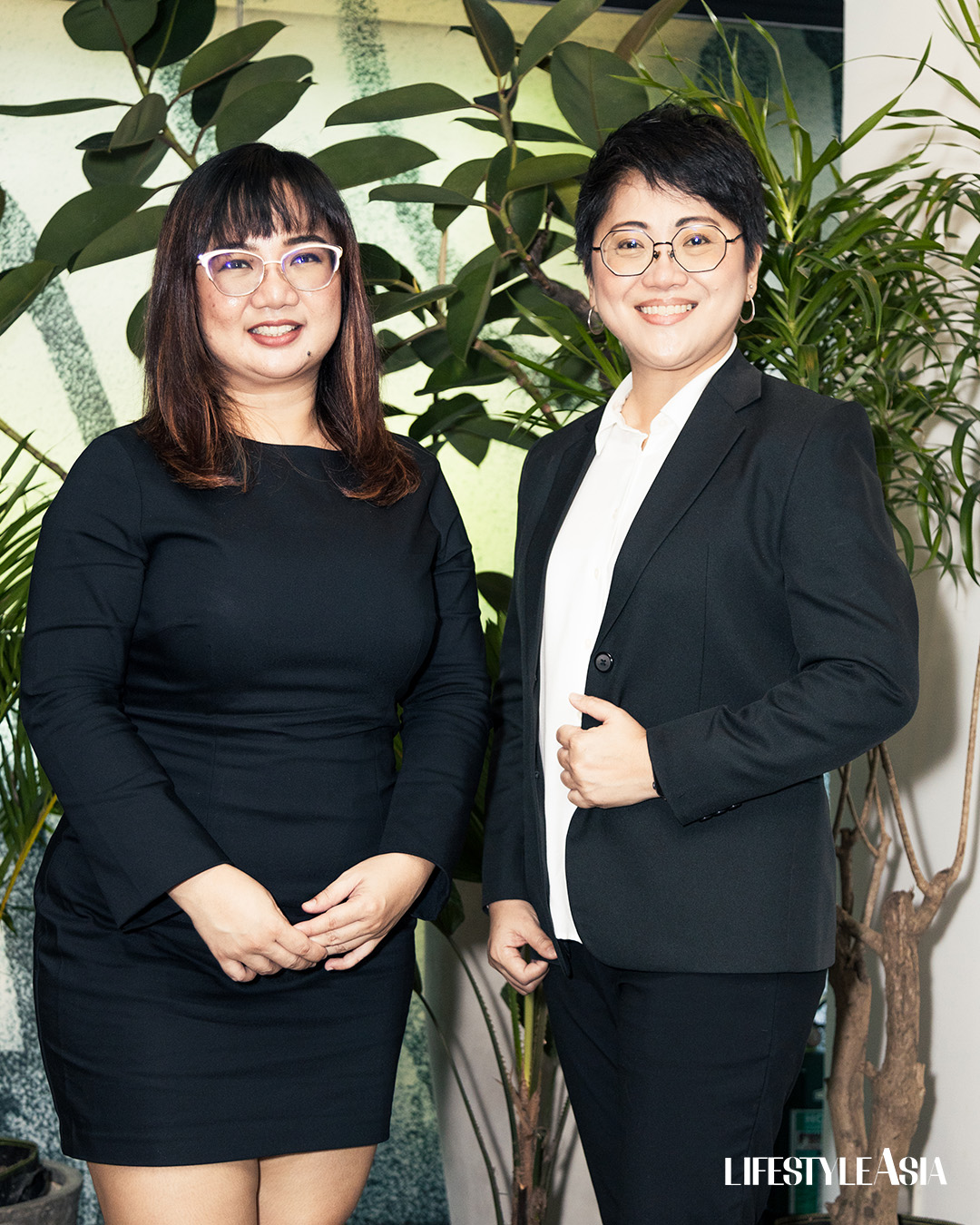
A licensed physical therapist and a licensed speech language pathologist, respectively, Angela and Carla would like to extend the concept of aruga using Linangin, an e-learning platform that was primarily developed out of the need of healthcare students to continue their education despite zero face-to-face patient interactions during the COVID-19 pandemic.
“In the Philippines, we only have around 400 licensed speech and language pathologists, and around 10,000 licensed physical therapists,” Angela tells Lifestyle Asia. “Compare that to millions of our population. If healthcare students are not able to graduate, then the gap [between these figures] would grow bigger.”
Carla explains that although the idea of having virtual classrooms has already been introduced in the country, an e-learning platform that focuses on enriching the knowledge of healthcare professionals, students even, is a first. “They can take their classes or upskill whenever they want to, and perhaps, eventually, we can bring the ratio of patient to practitioner shorter and closer to ideal.”
Enrique Hormillo and Miguel Locsin of DOON Transport Technologies Inc.
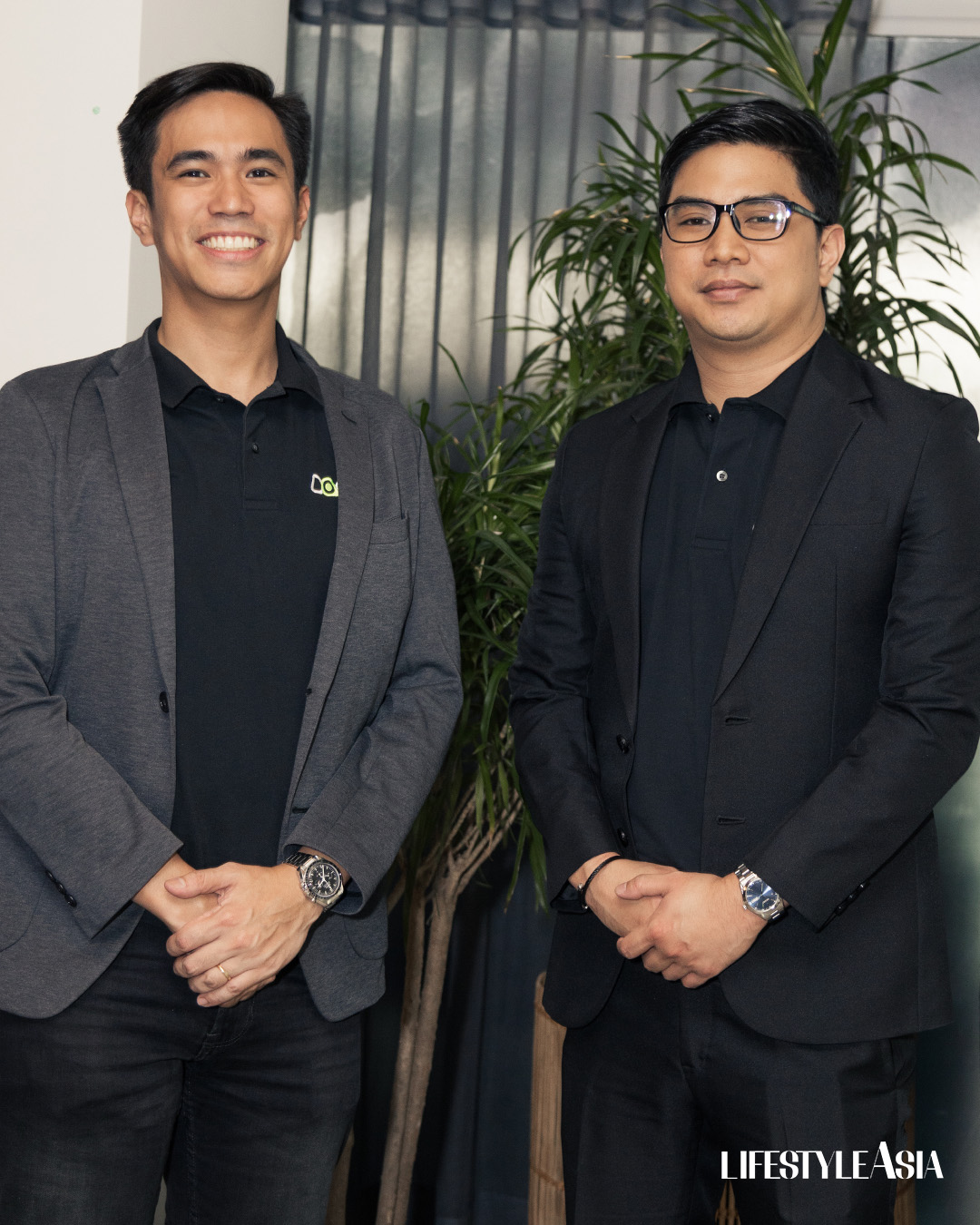
DOON is the first fully insured peer-to-peer car-sharing marketplace in the Philippines. “None of the cars are ours; they’re all privately owned by private hosts,” explains Enrique Hormillo, CEO and Founder of DOON Transport Technologies, Inc. “We provide the insurance, the road-side assistance, the GPS tracking to make sure the cars are totally safe throughout every single trip.”
The application’s goal is to alleviate the issues of trust, of theft, and of not knowing what to do when the vehicle breaks down. “We really want to help people put their assets in a good position to perform,” DOON’s COO and Co-Founder Miguel Locsin says, “as long as you meet [our] criteria.”
His partner Enrique further explains that the DOON app can have a variety of cars, from economical to high-end, which one can rent out to lots of people and brands, even to businesses who need pick-up trucks. “Basically anything and everything you can put on that platform, and now that’s not really possible in the Philippines,” he revels.
Felicia Perez and Jay Magsaysay of GoGym
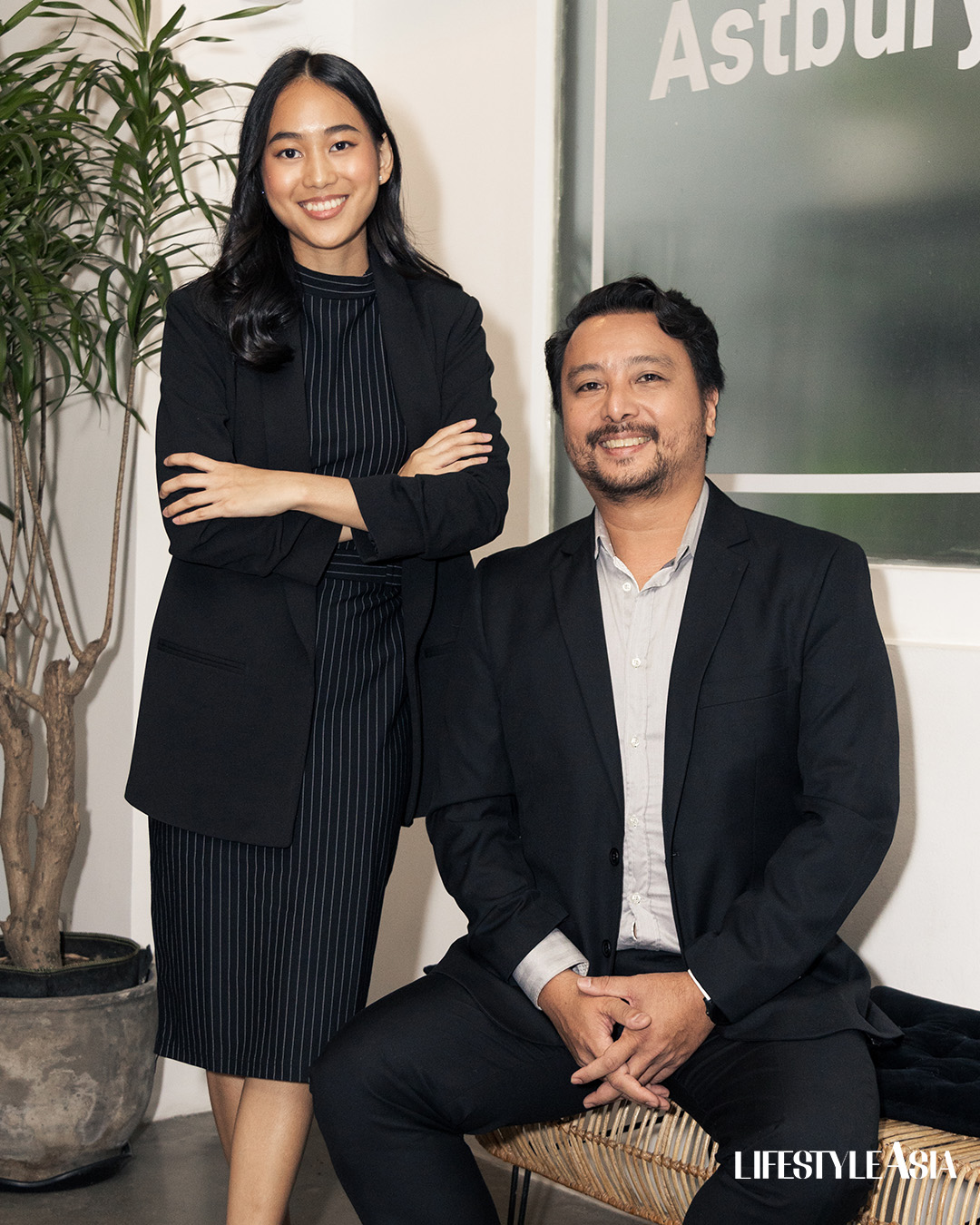
Established in 2022, GoGym is a tech-enabled pocket gym concept that is designed for local neighborhoods or barangays. “It’s a small gym that leverages on technology, while still allowing users to experience the physical aspect of a gym,” Felicia Perez, GoGym’s Chief Product Officer, describes. “One can utilize the app to book gym pods, pay online sessions, and access fitness classes and workout plans. This way we can give users the liberty to take full control of their fitness journey.”
Felicia says their team saw a gap between bakal gyms and the premium subscription-based ones. “There’s not enough space for diversity,” she added, referring to these gyms being more focused on heavy lifting. For her, it seemed that there were not enough gyms that could be a place for people who do not lift weights.
With inclusivity at the forefront, GoGym founders want to be able to cater to the other half of the population—senior citizens, women, mothers, and students. “They’re not usually the target of a traditional gym,” CEO and Co-Founder Jay Magsaysay expresses. “We want to open up a comfortable space where they can have the gym to themselves but, of course, not eliminating the usual gym goers. That’s why we have peak and off-peak hours.” Eventually, GoGym aims to put up at least 1,000 pocket gyms across 42,000 barangays in the country.
JT Solis, Josef Amarra, and Ochie San Juan of Mayani
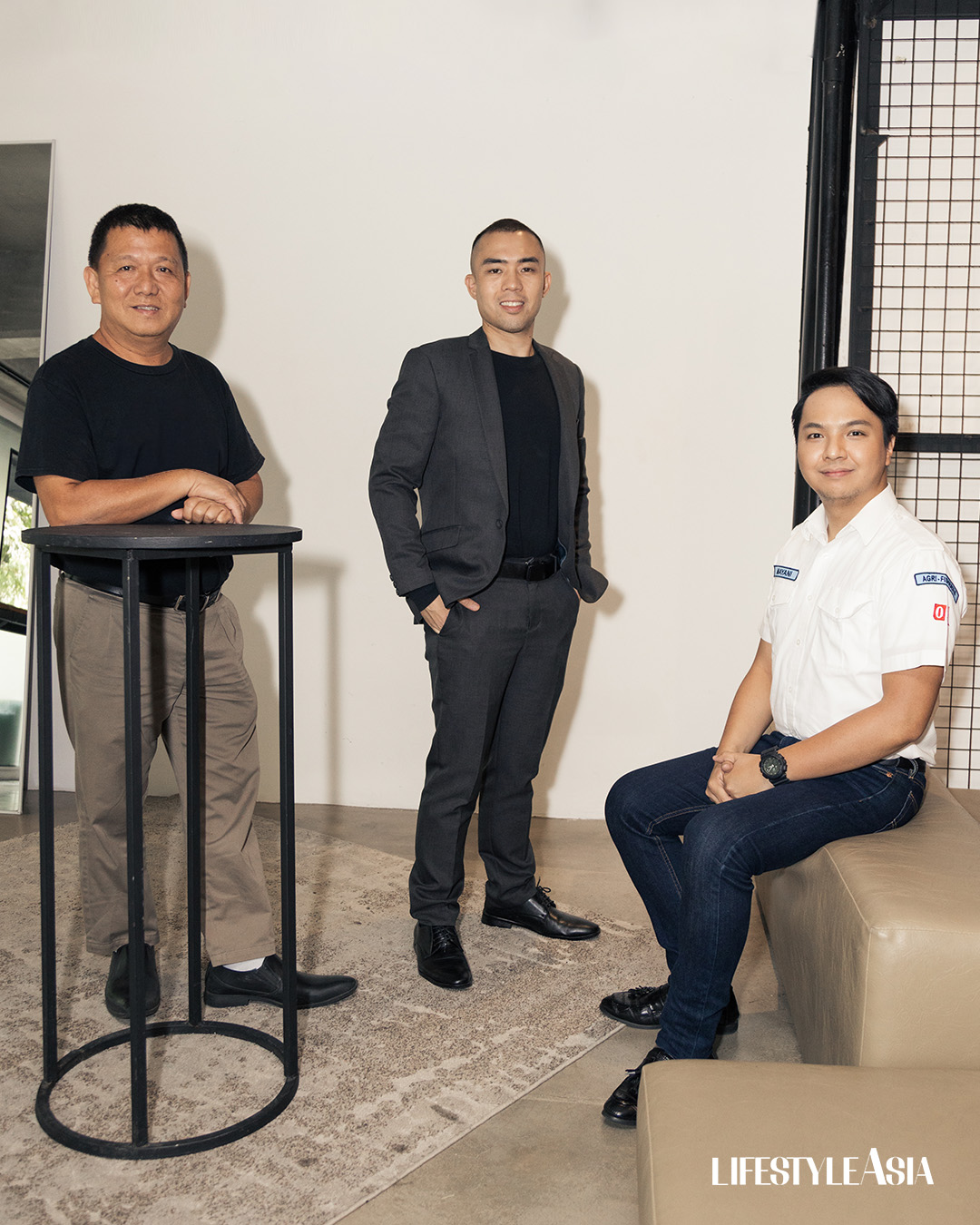
“Based on data, the most overlooked sector is our farmers and fisher folks,” CEO JT Solis shares. “[There is also] a disorganization or disjoint between them and the market, wherein there’s a lot of demand, but at the same time there’s no proper course or proper process from farm to table.” In hopes of igniting a tech revolution for the Filipino farmers, JT Solis and his co-founders Josef Amarra and Ochie San Juan established Mayani, an agri-tech startup that aims to empower smallholder farmers and smallholder fisherfolks in the country.
Mayani initially started as a partnership between farmers and fisherfolks in Lian, Batangas, handing out assistance to put up an agricultural school. “Initially, we wanted to help create income-generating projects,” Mayani’s Chief of Fulfillment Ochie San Juan recalls. Eventually, the platform grew into an advocacy, giving information that is data-driven and formulated for the agri-community. “Now, we organize farmers’ associations and corporate groups, so that within this group of people, we can gain more volumes of production and we can address the needs of the community and the market,” adds Josef Amarra, Mayani’s Co-Founder and Chief of Platform.
“It’s about time we give them access, and we give them all the support and opportunities out there, since it’s a tech-driven world already,” JT Solis tells Lifestyle Asia.
Claire Ongcangco and Miko Cornejo of Parlon Beauty and Wellness Technologies, Inc.
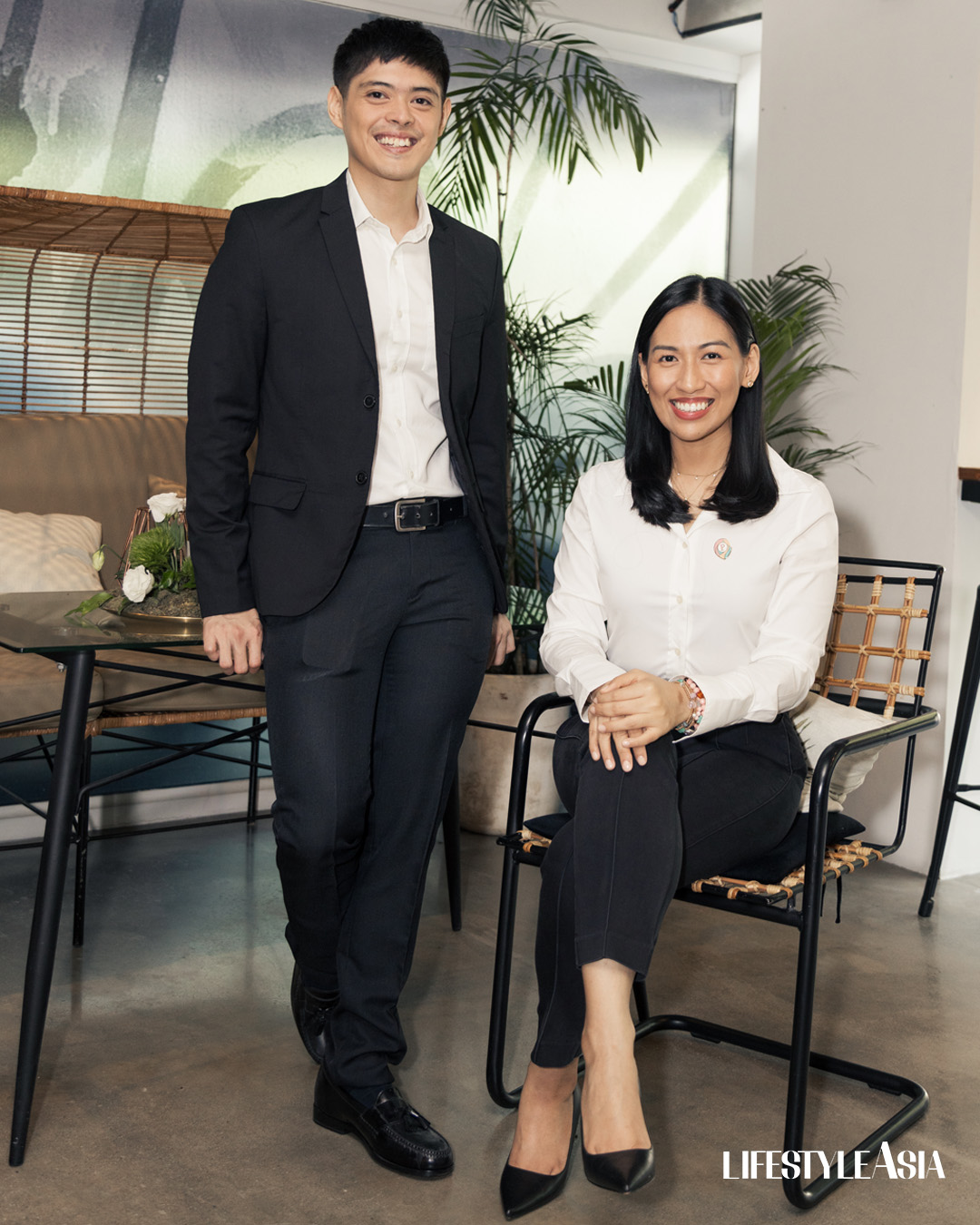
A beauty enthusiast and an established IT enterpriser, Claire Ongcangco aims to bridge the gap in the digitalization of services in the country. “You can book hotels, rides, plane rides, and restaurants, even buy groceries online,” she observes. “Yet the salon and wellness service industry seemed to be left out, you know, how we buy our makeup and skincare [services] online.”
She dreamt of a retail experience where one can get their hair, eye lashes, makeup, as if browsing through kiosks at the mall in order to get the best deal—but in the virtual landscape. “We are making beauty and wellness [services] accessible to everyone,” Claire explains. Her co-founder and Chief Technology Officer Miko Cornejo agrees, saying, “With Parlon, you get to discover a wide variety of merchants and price ranges, and at the same time have the convenience of booking them online.”
This is a first in the country’s beauty services landscape. “It’s like the world was waiting for us to digitize this space,” Claire concludes.
This year’s Glenfiddich WHERE NEXT CLUB will wrap up with a culminating event in 2024 to recognize the top Filipino Maverick, whose concept is the most sustainable and disruptive in their field of entrepreneurship.

Let the Glenfiddich legacy live on, as we eagerly await the next chapter in the WHERE NEXT CLUB. Stay tuned for exciting announcements, and follow Glenfiddich on Instagram. You may also inquire via email at [email protected].
Photography by EXCEL PANLAQUE of KLIQ, Inc.





